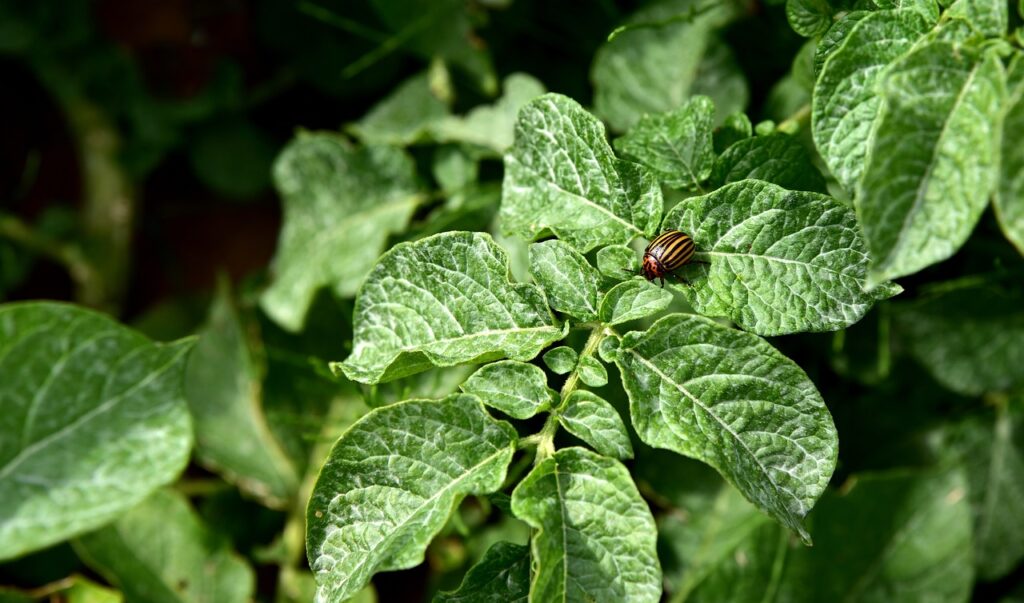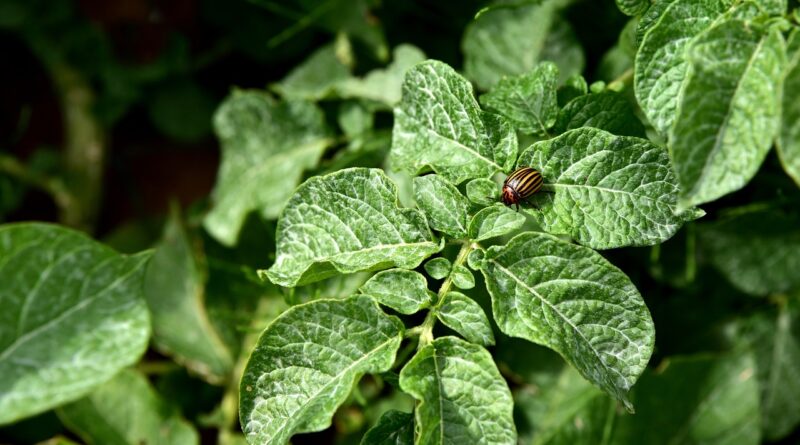Common Garden Pests And How To Control Them Naturally
Are you tired of your beautiful garden being destroyed by pesky insects? Don’t worry, there are natural methods for controlling these common garden pests. By identifying the specific pests that are causing damage to your plants, you can take the necessary steps to prevent further harm and keep your garden thriving.
Aphids, slugs, snails, caterpillars, and beetles are just a few of the pests that can wreak havoc on your garden. But with a little knowledge and effort, you can keep these pests at bay without resorting to harmful chemicals.
In this article, we’ll discuss how to identify these common garden pests and provide natural methods for controlling them, so you can enjoy a healthy and vibrant garden all season long.
Identifying Common Garden Pests
You’re probably wondering how to spot those pesky garden pests that have been munching on your plants. The first step in preventing infestations is early detection.
Some common garden pests to watch out for include aphids, slugs, snails, caterpillars, and spider mites.
Aphids are small, green insects that feed on the sap of plants. They can be found on the underside of leaves and can quickly multiply if left unchecked.
Slugs and snails are often found hiding in damp areas and can cause damage to the leaves and stems of plants.
Caterpillars can be identified by their soft, segmented bodies and can cause damage to leaves and fruit.
Spider mites are tiny and difficult to see without a magnifying glass, but their presence can be detected by the fine webbing they leave behind.
By learning to identify common garden pests, you can take steps to prevent infestations and protect your plants.
Natural Methods for Controlling Aphids
Using homemade insecticidal soap is a simple and effective way to get rid of those pesky aphids in your garden. You can easily make your own by mixing together a few tablespoons of dish soap with a gallon of water. Spray the mixture directly onto the aphids and their eggs, making sure to cover all affected areas.
Another natural method for controlling aphids is to attract beneficial insects to your garden. Ladybugs, lacewings, and hoverflies are all natural predators of aphids. You can attract these insects by planting companion plants such as dill, fennel, and yarrow.
Additionally, keeping your garden healthy with proper watering and soil management can help prevent aphid infestations in the first place. Remember, natural methods may take a little more time and effort, but they’re safer for the environment and the beneficial insects in your garden.
Managing Slugs and Snails in Your Garden
If you’re tired of finding slimy slugs and snails in your garden, there are a few methods you can try to manage them.
One natural solution is using beer traps. Simply bury a small container, such as a yogurt cup, in the soil so that the rim is level with the ground. Fill the container with beer and wait for the slugs and snails to crawl in and drown. The scent of the beer will attract them, and the alcohol will kill them. Be sure to empty and refill the traps regularly.
Another option is using copper tape. Slugs and snails cannot stand the sensation of copper, so placing a strip of copper tape around the perimeter of your garden bed can create a barrier that they won’t cross. Copper tape can also be used around individual plants or pots to protect them.
Both beer traps and copper tape are effective and environmentally friendly solutions for managing slugs and snails in your garden.
Dealing with Caterpillar Infestations
When tiny green caterpillars start munching on your prized plants, it can feel like a scene straight out of a horror movie. But don’t panic just yet.
There are organic solutions to help control caterpillar infestations and protect your garden. One way to naturally control caterpillar infestations is to encourage butterfly conservation.
Butterflies lay their eggs on plants, and when the eggs hatch, the caterpillars will feed on the leaves. By planting butterfly-friendly flowers, you can attract more butterflies to your garden and provide them with a source of food.
In turn, the butterflies will lay their eggs on those plants, diverting the caterpillars’ attention away from your prized plants. Additionally, you can manually remove the caterpillars from your plants and relocate them to a different area, preventing them from causing any further damage.
Preventing Beetle Damage to Your Plants
You can protect your beloved plants from devastating beetle damage by implementing some simple preventative measures. One of the easiest ways to keep beetles away from your plants is to plant beetle repellent plants around them. Some examples of these plants include marigolds, chives, and garlic. These plants emit a strong odor that repels beetles and other pests.
You can also create a homemade beetle spray by mixing water, dish soap, and hot sauce. This spray can be applied directly to the leaves of your plants to deter beetles from feeding on them. Another way to prevent beetle damage is to keep your garden clean and free of debris. Beetles tend to hide and lay eggs in piles of leaves, grass clippings, and other garden waste.

By keeping your garden tidy, you can reduce the number of places where beetles can make themselves at home. Additionally, you can use row covers or netting to physically block beetles from accessing your plants. These covers can be placed over your plants and secured with stakes or weights.
By taking these preventative measures, you can keep beetles at bay and ensure that your plants stay healthy and thriving.
Frequently Asked Questions
How do I know if a garden pest is harmful or beneficial to my plants?
To identify pests, observe the damage they cause and look for physical characteristics. Beneficial bugs, such as ladybugs and praying mantises, prey on harmful pests and can indicate a healthy garden ecosystem.
Are there any natural methods for controlling garden pests that are harmful to other wildlife?
You can use natural pest control methods that are eco-friendly and won’t harm other wildlife. Look for solutions such as companion planting, homemade sprays, and physical barriers like netting or row covers.
Can I use essential oils to repel garden pests?
Yes, you can use essential oils as DIY pest repellents. Essential oil effectiveness varies, but some oils like peppermint and citronella can repel pests. Experiment with different oils and application methods to find what works best for you.
How can I attract beneficial insects to my garden to help control pests?
To attract beneficial insects, plant companion plants like marigolds, lavender, and dill. These plants provide food and shelter for ladybugs, lacewings, and other predators which can help control pests.
Are there any non-toxic ways to manage Japanese beetle infestations?
To manage a Japanese beetle infestation, try organic solutions like handpicking, neem oil, and companion planting. Planting marigolds, catnip, and garlic around affected plants can also repel them.
Conclusion
Congratulations! You now have the knowledge to identify and control some of the most common garden pests naturally. By using simple techniques like companion planting, introducing beneficial insects, and creating physical barriers, you can protect your plants without resorting to harmful chemicals.
Remember to keep a watchful eye on your garden and act quickly at the first signs of infestation. With a little bit of effort and some natural methods, you can keep your garden thriving and free from pests all season long.
Happy gardening!

